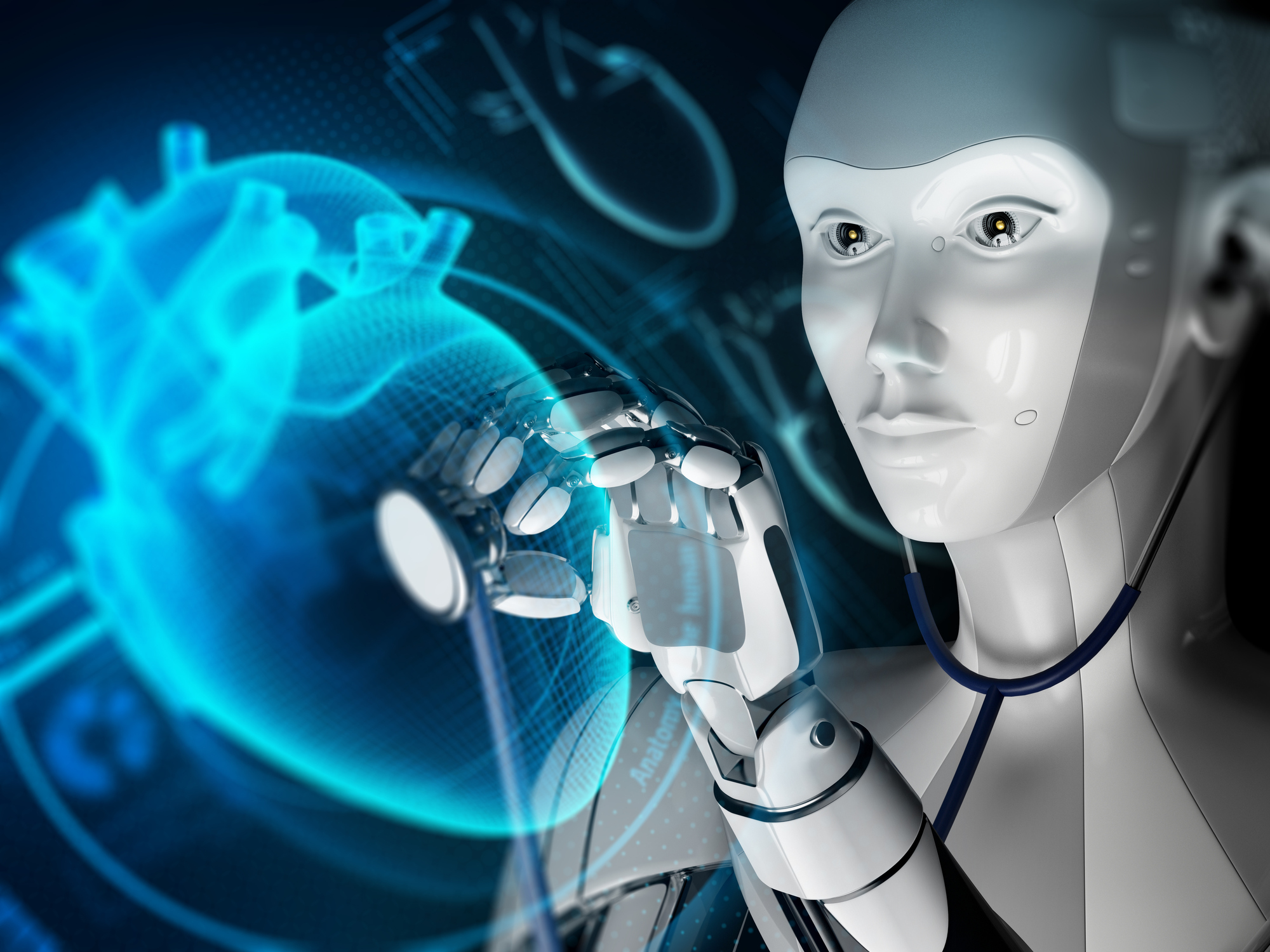As we approach 2025, artificial intelligence (AI) is poised to play an even more integral role in healthcare, revolutionizing the way care is delivered, improving patient outcomes, and optimizing healthcare systems. With the ongoing evolution of AI and automation technologies, healthcare professionals are increasingly relying on intelligent systems to streamline processes, enhance decision-making, and reduce operational inefficiencies. From diagnostics to patient care management and administrative tasks, AI is transforming nearly every aspect of the healthcare sector.
AI-powered healthcare automation is not only improving the quality and efficiency of care but is also helping to address some of the most pressing challenges faced by the industry. These include managing an aging population, dealing with staffing shortages, and navigating the growing demand for healthcare services. As AI continues to evolve, its potential to transform healthcare in the coming years is boundless.
Understanding AI in Healthcare Automation
AI in healthcare automation refers to the use of machine learning algorithms, natural language processing (NLP), robotic process automation (RPA), and other AI-driven technologies to optimize various aspects of healthcare delivery. This includes everything from clinical decision support and medical imaging analysis to administrative functions like billing, scheduling, and patient communication.
Machine learning, one of the core components of AI, allows systems to analyze vast amounts of patient data and make predictions about health outcomes. These AI models can identify patterns that may not be immediately apparent to human doctors, helping to detect diseases early, recommend personalized treatment plans, and monitor patients remotely. Meanwhile, automation technologies are being applied to streamline administrative workflows, reducing the burden on healthcare professionals and allowing them to focus more on patient care.
In short, AI is helping healthcare providers work smarter, not harder, by automating time-consuming tasks, improving patient care, and enhancing the overall efficiency of healthcare delivery.

Key Benefits of AI in Healthcare Automation
AI-powered healthcare automation offers a multitude of benefits, from increasing operational efficiency to improving patient outcomes. Some of the key advantages of AI in healthcare automation include:
1. Enhanced Diagnostics and Early Detection
One of the most significant impacts of AI in healthcare is its ability to assist in diagnostics and early disease detection. AI-powered diagnostic tools can analyze medical imaging, such as X-rays, MRIs, and CT scans, with remarkable accuracy, often identifying conditions that may be missed by human doctors. Machine learning algorithms are trained on large datasets of medical images, allowing them to detect patterns and anomalies that indicate the presence of diseases like cancer, heart disease, and neurological disorders.
For instance, AI can be used to analyze mammograms for signs of breast cancer, detecting tumors at an earlier stage when treatment is more effective. Similarly, AI can aid in the diagnosis of neurological conditions, such as Alzheimer’s disease, by analyzing brain scans and detecting subtle changes in brain structure that might be indicative of disease.
This early detection capability has the potential to save lives by identifying diseases before they progress to more advanced stages. By catching diseases earlier, healthcare providers can implement timely interventions that improve patient outcomes and reduce the overall cost of treatment.
2. Improved Personalized Treatment Plans
AI is also helping to deliver more personalized care to patients by analyzing individual health data and recommending treatment plans tailored to their unique needs. By leveraging data from electronic health records (EHRs), wearable devices, and genetic information, AI can provide healthcare providers with a comprehensive view of a patient’s health history, lifestyle, and genetic predispositions.
AI-driven systems can analyze this data and suggest treatment options that are more likely to be effective based on a patient’s individual characteristics. For example, AI can help oncologists design personalized cancer treatment plans that take into account the genetic makeup of both the patient and the tumor. Similarly, AI can help cardiologists develop personalized heart disease treatment plans by analyzing a patient’s medical history, lifestyle, and other relevant factors.
Personalized treatment plans not only improve patient outcomes but also help reduce the likelihood of adverse side effects and complications, leading to more effective and efficient care.
3. Streamlining Administrative Tasks
Healthcare organizations spend a significant amount of time and resources on administrative tasks like billing, scheduling, and patient communication. AI-powered automation is helping to streamline these processes, freeing up time for healthcare professionals to focus on patient care.
For example, robotic process automation (RPA) can be used to automate billing and coding processes, reducing the risk of human error and ensuring that claims are submitted accurately and on time. AI-powered chatbots can handle routine patient inquiries, appointment scheduling, and prescription refills, improving patient satisfaction and reducing the workload of administrative staff.
Additionally, AI can assist with patient flow management by predicting peak periods of demand and helping healthcare providers optimize staffing levels and appointment schedules. By automating administrative functions, healthcare organizations can reduce costs, improve efficiency, and enhance the overall patient experience.
4. Improved Patient Monitoring and Care
AI-powered tools are also being used to monitor patients remotely, providing continuous, real-time data that can be used to adjust treatment plans and detect potential issues before they become serious. Wearable devices that track vital signs, such as heart rate, blood pressure, and oxygen levels, are increasingly being used to monitor patients with chronic conditions like diabetes, heart disease, and respiratory illnesses.
AI algorithms can analyze the data collected from these devices and alert healthcare providers to any abnormalities that require immediate attention. For instance, AI can detect early warning signs of a heart attack or stroke and alert the healthcare team, allowing for faster intervention and better outcomes.
Moreover, AI-powered systems can analyze patient data to identify trends and predict potential health issues before they arise. For example, AI can detect patterns in a diabetic patient’s blood sugar levels and suggest adjustments to their medication or diet. By continuously monitoring patients and providing real-time feedback, AI can help improve long-term health outcomes and reduce the need for hospital readmissions.
5. Reducing Healthcare Costs
The integration of AI into healthcare automation has the potential to significantly reduce costs across the system. By automating routine tasks, streamlining administrative functions, and improving the efficiency of healthcare delivery, AI can lower operational expenses for hospitals, clinics, and other healthcare providers.
Additionally, AI’s ability to improve diagnostics and treatment outcomes can lead to reduced healthcare costs in the long term by preventing costly complications and hospital readmissions. Early detection and personalized treatment plans can help patients avoid more expensive and invasive procedures, ultimately reducing the overall cost of care.
For instance, AI-driven tools that help with disease prevention, early diagnosis, and treatment optimization can reduce the need for expensive emergency interventions and lengthy hospital stays. This cost-saving potential is especially important as healthcare systems around the world face rising costs and an aging population.
The Role of AI in Healthcare Business Trends
As AI continues to reshape the healthcare industry, it will also have a profound impact on broader business trends in the healthcare sector. The growing reliance on AI-powered automation is driving innovations in healthcare delivery and creating new opportunities for startups and established businesses alike.
For example, startups that specialize in AI-driven healthcare solutions are emerging as key players in the industry. From AI-powered diagnostic tools to telemedicine platforms, these companies are leveraging cutting-edge technology to improve patient outcomes and disrupt traditional healthcare models. Startup ideas centered around AI in healthcare are becoming increasingly popular, as entrepreneurs recognize the potential to innovate in a sector that is ripe for digital transformation.
In addition, the increasing adoption of AI in healthcare is leading to a shift in how healthcare providers approach patient care. More and more organizations are embracing digital health technologies, online business models, and telemedicine services to expand their reach and offer more convenient care options. The demand for AI-powered healthcare automation solutions is expected to grow rapidly as healthcare providers seek to stay competitive and meet the evolving needs of patients.
AI in Healthcare Automation and Future Outlook
As we look ahead to 2025 and beyond, the role of AI in healthcare automation will only continue to grow. Innovations in AI and machine learning, coupled with advancements in data analytics, will further enhance the ability of healthcare providers to deliver more personalized, efficient, and effective care.
AI-powered healthcare solutions will likely become even more integrated into everyday healthcare delivery, making it possible for patients to receive care remotely, monitor their health in real time, and access personalized treatment plans. Moreover, as AI continues to evolve, it will enable healthcare providers to make even more accurate predictions about patient outcomes, improving the overall quality of care and reducing costs.
With the rise of AI and automation technologies, healthcare organizations will be able to create more efficient, scalable, and patient-centered systems. For businesses in the healthcare sector, adopting AI-powered automation will be essential for staying competitive, improving patient satisfaction, and achieving long-term success in an increasingly digital healthcare landscape.
Conclusion
AI in healthcare automation is a transformative force that is reshaping the industry as we approach 2025. From improving diagnostics and early detection to streamlining administrative processes and enhancing patient care, AI is driving significant improvements in healthcare efficiency and quality. As these technologies continue to advance, the future of healthcare looks brighter than ever, with AI playing a central role in delivering smarter, more personalized, and more affordable care to patients around the world. By embracing AI technologies tools, healthcare providers can position themselves for success in the rapidly evolving digital health landscape.

